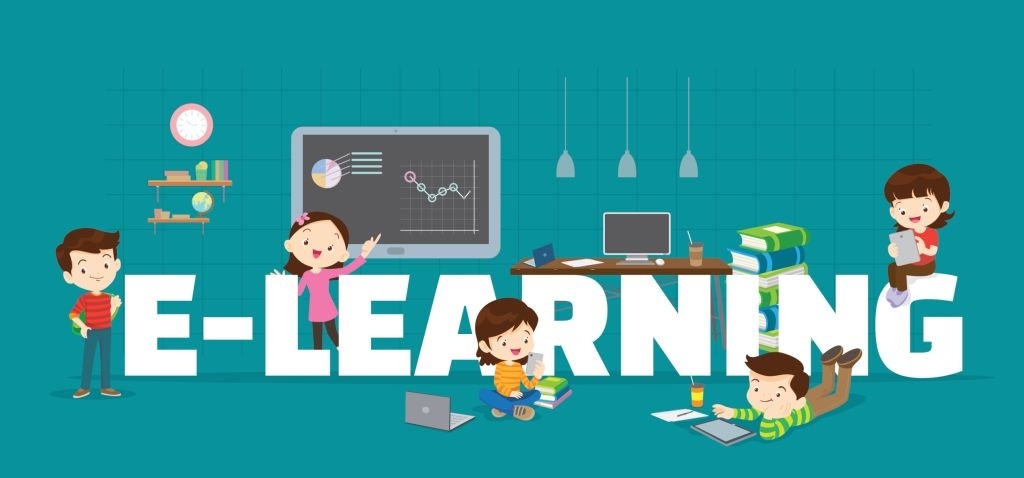Why Education and Study for Children and Kids is Critical for Growth
Checking Out the Significance of E-Learning for Youngsters in the Modern Educational Landscape
In today's rapidly advancing academic landscape, the significance of e-learning for youngsters can not be overemphasized. E-learning platforms offer unparalleled ease of access and flexibility, satisfying diverse understanding designs while fostering vital digital literacy skills. These systems integrate interactive components that boost interaction and advertise crucial reasoning, preparing trainees for future obstacles. As we consider the transformative influence of innovation on education and learning, it is imperative to check out how e-learning can better enhance learning outcomes and cooperation among young students. What specific benefits does e-learning deal that conventional techniques may not, and exactly how can these be made the most of for optimal educational development?
Advantages of E-Learning
E-learning uses countless benefits for children, reinventing the way they get knowledge and abilities. E-learning systems enable children to gain access to academic material from essentially anywhere, damaging geographical obstacles and facilitating constant discovering.

Furthermore, e-learning cultivates technical efficiency. As youngsters browse electronic platforms, they acquire vital computer skills and come to be skilled at making use of numerous software program and devices, which are vital in today's electronic age. In addition, e-learning can integrate interactive elements such as games, video clips, and quizzes, making the discovering experience much more engaging and delightful.
On top of that, e-learning sustains diverse discovering needs via adjustable material, dealing with private preferences and advertising inclusivity. Altogether, e-learning supplies a functional, comprehensive, and interesting technique to modern education.
Enhancing Learning Outcomes
Building on the advantages highlighted, boosting learning outcomes via e-learning is a multifaceted venture that leverages modern technology to improve academic efficacy. E-learning systems provide customized learning experiences, permitting for tailored educational methods that provide to specific student requirements.
Furthermore, e-learning helps with access to a vast variety of sources, including interactive simulations, instructional games, and multimedia material. These devices can illuminate intricate concepts and make finding out more engaging, thereby improving retention prices. The integration of analytics even more enables teachers to track progress, recognize discovering voids, and carry out targeted treatments.
Partnership and communication are likewise significantly improved with e-learning. Digital classrooms and conversation online forums provide possibilities for peer interaction and cumulative analytic, which are vital for reinforcing found out ideas. Additionally, the adaptability of e-learning allows for asynchronous knowing, fitting different understanding speeds and schedules.
Promoting Important Thinking
While improving discovering results is a significant advantage of e-learning, an additional profound effect lies in its capability to cultivate crucial reasoning amongst students. E-learning systems frequently include interactive activities, simulations, and analytical jobs that require pupils to evaluate info, review various end results, and make reasoned decisions. These activities surpass rote memorization, motivating pupils to engage deeply with material and use their understanding in sensible situations.
In addition, the self-paced nature of e-learning equips students to check out subjects at their own rate, promoting a reflective approach to understanding. This autonomy permits Get More Info learners to examine assumptions, seek additional resources, and attract links between various concepts, consequently nurturing a frame of mind tailored toward critical evaluation.
Additionally, e-learning tools often consist of collective attributes such as discussion online forums and team tasks, which better boost critical reasoning. Involving with peers in an electronic setting calls for pupils to articulate their ideas clearly, think about alternative perspectives, and construct proven arguments. These interactions are important in developing critical assuming abilities that are necessary for academic success and future professional endeavors.
Hence, e-learning attracts attention not just for its capability to improve instructional end results yet likewise for its considerable function in creating essential, independent thinkers.
Digital Proficiency Abilities
Just how can students thrive in an electronic world without grasping electronic literacy skills? As e-learning comes to be increasingly widespread, the necessity for trainees to create these skills can not be overemphasized - Education and study for children and kids.
Digital proficiency allows trainees to efficiently locate, review, and make use of information, fostering a setting conducive to self-directed discovering. It additionally furnishes them with the capability to recognize qualified sources from unstable ones, a necessary skill in an age where misinformation is widespread. By familiarizing themselves with electronic tools, pupils can improve their creativity and partnership through various on the internet systems and multimedia projects.
Very early exposure to these skills via Visit Your URL e-learning systems settings trainees to be competitive in a worldwide job market. Incorporating electronic literacy right into the educational curriculum is not simply useful yet critical for supporting well-rounded, future-ready residents.
Future of Education
As we look into the future of education and learning, it becomes evident that technological advancements will certainly play a critical function in forming the discovering landscape. E-learning platforms are find out here established to advance, coming to be a lot more tailored and interactive, catering to the special requirements of each trainee. Expert System (AI) will likely go to the forefront of this transformation, making it possible for flexible knowing experiences that can identify and resolve private staminas and weak points in real-time.

In addition, the ubiquity of internet accessibility will certainly help with international class, breaking down geographical barriers and advertising cross-cultural knowing experiences. This connection will certainly make it possible for students from diverse backgrounds to team up, promoting a more inclusive and detailed educational experience.
However, these developments additionally necessitate a concentrate on digital citizenship and cybersecurity. Educators and policymakers should interact to make sure that kids are outfitted with the abilities to browse this digital world properly and safely. The future of education and learning, hence, rests on balancing technical advancement with moral considerations.
Conclusion
E-learning's assimilation into modern education is critical, providing improved ease of access, personalized learning experiences, and promoting crucial thinking - Education and study for children and kids. By advertising digital proficiency, it prepares trainees for a technology-driven future. The dynamic nature of e-learning addresses diverse finding out styles and involves students interactively, guaranteeing they are furnished with necessary abilities for future difficulties. As innovation advances, e-learning's function in forming versatile, electronically qualified individuals comes to be increasingly substantial, solidifying its importance in contemporary education and learning.
E-learning systems supply customized discovering experiences, permitting for tailored instructional approaches that cater to private student needs.While boosting discovering results is a considerable benefit of e-learning, an additional extensive effect exists in its capability to cultivate essential reasoning among pupils. As e-learning ends up being significantly prevalent, the requirement for trainees to establish these skills can not be overstated.
Early exposure to these skills through e-learning systems placements trainees to be affordable in an international task market. The vibrant nature of e-learning addresses diverse learning designs and engages students interactively, guaranteeing they are furnished with required skills for future difficulties.